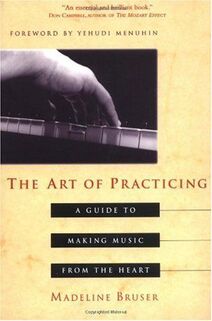|
Learning Plans
A learning plan is a document (possibly an interactive or on-line document) that is used to plan learning, usually over an extended period of time. Any entity can have a learning plan. They are often used by individuals to plan and manage their own learning, but they can also be used by teams, communities of practice or organizations. Learning Plan - Wikipedia, the free encyclopedia en.wikipedia.org/wiki/Learning Plan What might you learning plan look like? Clarity and specificity are important. Classical student Goal: Sit for my Grade 4 exam in June 2021 Plan:
Goal: Be able to jam in a community group in one year. Plan:
0 Comments
 Meeting in person students you've only met online is always a thrill. Today I had coffee with a student from Northern BC who was passing through town. We recognized each other immediately, even in masks. We chatted about his hometown and the music making possibilities therein. For a town of 6 thousand there was a myriad of opportunities:
Four out of five of those present music making possibilities. For many students piano is a solitary activity enjoyed with a cup of tea or class of wine. Others? It's a party. More the merrier. I help students achieve both ambitions. Best, David How much effort will it take? Depends on:
What result are you looking for? Extraordinary results take extraordinary effort. Levels 1-3 plan on 30-45 minutes a day, more near exam time. Levels 4-6 45 minutes plus Levels 7-8 60 minutes Levels 9 -10 90 minutes plus It's like preparing for the Boston Marathon. This is on the piano bench. Add more time for theory and guided listening. How big is your or your child's desire? Realistically it should be high. A healthy mix of intrinsic and extrinsic motivation is needed. What piano skills are you bringing to the project? Please let me assess your skills before you make decisions. Sometimes transfer students, new to my studio, ask me to help them prepare for exams way above their current skill level. I may recommend some preparation to preserve your enthusiasm and my sanity. Have you done this before? Then you know what is in store. If this is a new adventure, let's talk. Here is my personal experience. I completed levels 10 and then the ARCT from age 43 through 47. It was by far the most exciting thing I've ever done at the piano. Remember, I had 25 years of professional experience behind me in commercial and jazz performance. I didn't play classical music or take exams as a child; I went straight to the band stand as a teenager. Classical piano was new to me as a formal study, though I had a love of the music, went to concerts etc. It was also the most time-consuming activity of my adult life. About 5000 hours over a four-year stretch. The results earned me national, provincial, and local scholarships. That was a surprise. Completing Berklee College of Music as a young man was easier in comparison. I had no idea an ARCT took so much. Would I do it again? In a heartbeat. Do I recommend the experience? Yes, it truly is a peak experience. I felt like superman for years afterwards. Are your practice skills Up-to-date for 2020? We do not grind anymore. Ask me, I help you get organised for success. Recommended books: David |
You've got to learn your instrument. Then, you practice, practice, practice. And then, when you finally get up there on the bandstand, forget all that and just wail. AuthorI'm a professional pianist and music educator in West Toronto Ontario. I'm also a devoted percussionist and drum teacher. Categories
All
|
 RSS Feed
RSS Feed